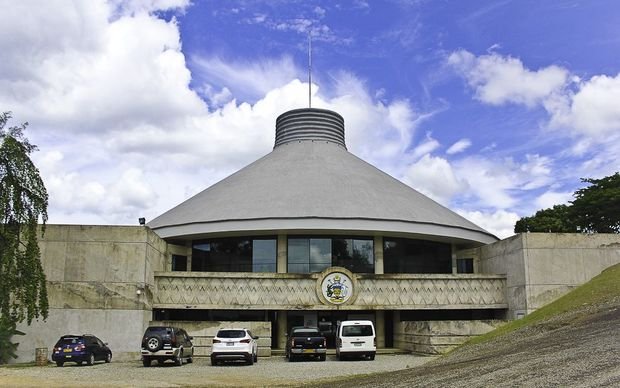
Parliament enacts Special Economic Zones Bill 2024
By Alfred Pagepitu
The National Parliament passed the Special Economic Zones Bill 2024 today without any amendments.
The bill now becomes an act of parliament to regulate and establish special economic zones across the country to promote investment, job creation, and economic growth.
The bill, introduced by the Minister for Commerce, Industry, Labour, and Immigration and Member of Parliament for North East Guadalcanal, Hon. Jamie Vokia, is designed to attract investment, create jobs, and stimulate economic growth throughout the country.
Speaker of Parliament, Hon. Patterson Oti, confirmed the bill’s passage following its review and endorsement by the Committee of the Whole House.
Before the third reading, Minister Vokia tabled a list of technical corrections under Standing Order 58(2), which will be incorporated into the final version of the bill before it is sent to the Governor-General for formal assent.
“By now, Members should have received a list identifying the errors in the Bill and explaining how these will be corrected. I now table that list for the official records of Parliament,” said Vokia.
The bill passed its third reading after extensive debate and scrutiny from both sides of the House.
In total, the SEZ Bill contains 101 clauses and four schedules outlining key frameworks, including:
- Schedule 1: Criteria for SEZ designation and licensing
- Schedule 2: Incentives for infrastructure development
- Schedule 3: Incentives for domestic market production
- Schedule 4: Incentives for export-oriented production
Minister Vokia highlighted the bill’s importance in laying a legislative foundation to support economic transformation and investor confidence.
Speaker of Parliament Patterson Oti presided over the bill’s passage.
“Honourable Members, it is proposed that the Special Economic Zone Bill 2024 be now read a third time and do pass.”
Meanwhile, Opposition Leader Hon. Matthew Wale welcomed the bill’s intentions but raised concerns regarding the use of “corrections” under Standing Order 58(2), cautioning that future changes should be processed as formal amendments.
“Corrigenda should be limited to genuine corrections not used as a backdoor for making amendments. There is a proper process for amendments, and we should follow it,” Mr. Wale stated.
Despite the concerns, the bill was passed without amendments and will soon be assented by the Governor General.
Parliament has adjourned and is scheduled to resume at 9:30 a.m. on Tuesday, 27th May 2025.
[end]
